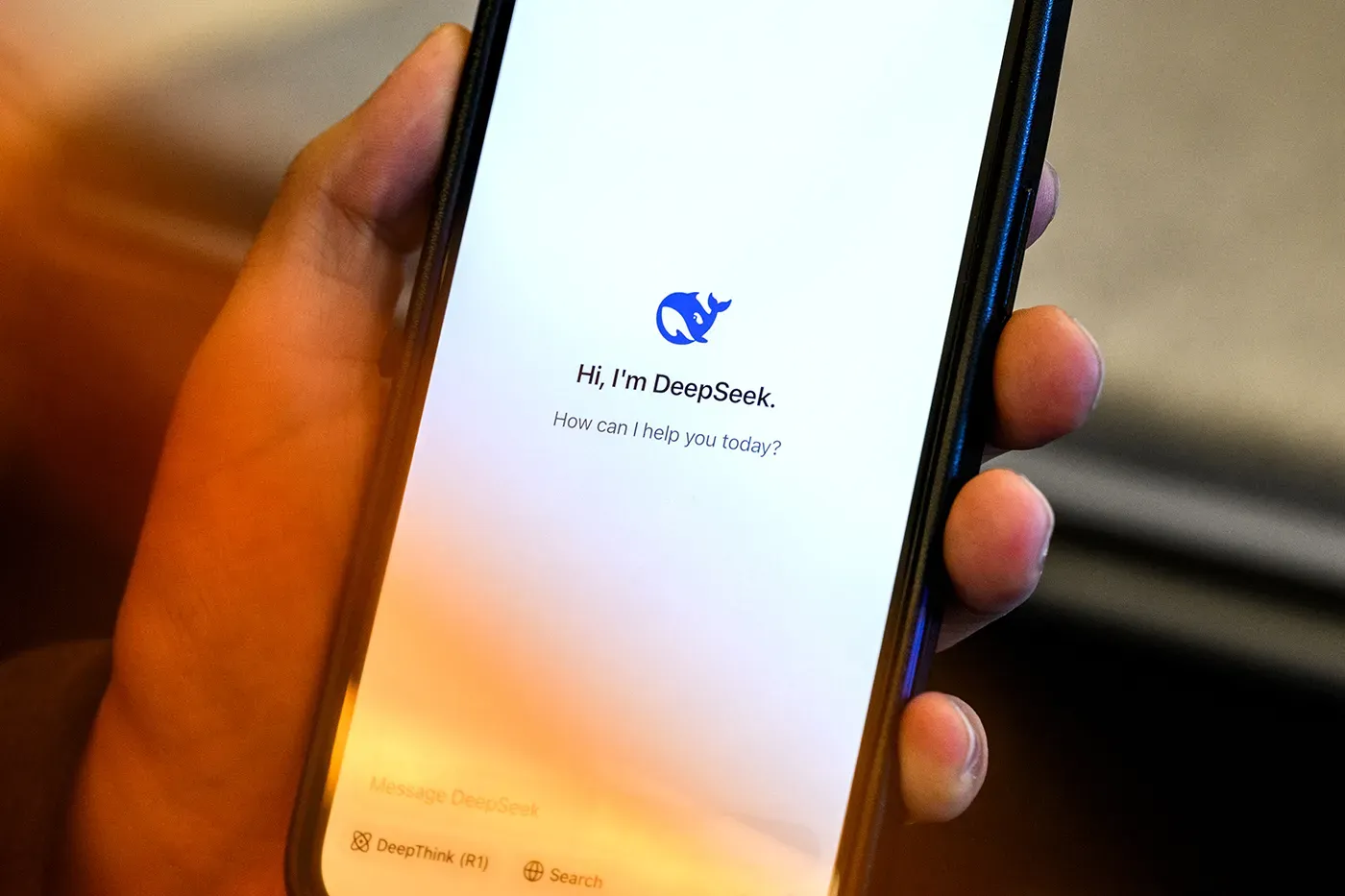The recent push for a DeepSeek ban has ignited a fierce debate around national security and data privacy. Lawmakers are advocating for an immediate ban on the Chinese chatbot DeepSeek, particularly on government devices, due to fears that the Chinese Communist Party (CCP) may have embedded a backdoor to access sensitive American data. This controversial app, which gained rapid popularity as a low-cost alternative to OpenAI’s models, has raised significant alarms regarding its alleged ties to China Mobile, a company previously banned by the Federal Communications Commission (FCC). As bipartisan legislation unfolds to address these concerns, the urgency to ban the DeepSeek app highlights the increasing scrutiny of foreign technology in US government operations. With the backdrop of growing apprehensions about the CCP’s capabilities, the DeepSeek controversy continues to unfold, raising critical questions about the protection of national security in the digital age.
In light of rising tensions over digital privacy and security, the call to restrict the usage of the Chinese-developed chatbot DeepSeek is gaining momentum. This application, which has been likened to a more powerful version of TikTok, is under scrutiny for potentially compromising sensitive information on government devices. Lawmakers from both parties are urgently discussing measures to prohibit the use of this app, citing alarming evidence that it may serve as a tool for the Chinese government to surveil American citizens. The growing unease surrounding the implications of DeepSeek on national security reflects a broader concern about foreign technologies infiltrating critical sectors within the United States. As the conversation continues, the potential repercussions for data protection and the integrity of government operations remain a priority.
Understanding the DeepSeek Ban and Its Implications
The proposed ban on the Chinese chatbot DeepSeek has emerged as a critical topic in discussions surrounding national security. Lawmakers are increasingly concerned that DeepSeek could pose a significant threat due to its alleged ties to the Chinese Communist Party (CCP). The potential for a backdoor embedded in the app raises alarms about the safety of sensitive data belonging to American citizens. If this legislation passes, DeepSeek could be banned on government devices within a swift 60-day window, reflecting the urgency lawmakers feel regarding this issue.
This legislative action is not just about banning a single app; it represents a broader strategy to safeguard national security against foreign threats. The risks associated with DeepSeek, particularly its connection to China Mobile—an entity already banned by the Federal Communications Commission (FCC)—highlight the complex relationship between technology and security. As countries worldwide grapple with similar challenges, the implications of a DeepSeek ban could set a precedent for how the US addresses foreign technology that may jeopardize its citizens’ privacy.
DeepSeek’s National Security Concerns
DeepSeek’s rapid rise to prominence in the US market raises serious national security concerns. The fact that this app, which was released with much fanfare, may be linked to a Chinese telecommunications giant has prompted intense scrutiny from lawmakers. They argue that any application developed by a company with potential ties to the CCP could be weaponized against American interests, leading to unauthorized surveillance of private data. With sensitive documents, contracts, and financial records at risk, the stakes could not be higher.
As research reveals deeper connections between DeepSeek and Chinese state interests, the urgency for a comprehensive investigation grows. Lawmakers like Josh Gottheimer have explicitly stated that allowing such technology to operate unchecked is tantamount to compromising national security. With bipartisan support for the No DeepSeek on Government Devices Act, there is a strong push to ensure that American governmental infrastructure remains secure from foreign threats, particularly those posed by adversaries like the CCP.
The Controversy Surrounding DeepSeek
The emergence of DeepSeek has not only raised questions about national security but has also ignited a broader controversy surrounding foreign technology in the US. Critics argue that the app, which has gained immense popularity due to its open-source model and competitive pricing, is a prime example of how foreign entities can infiltrate American markets. The controversy is compounded by claims that DeepSeek is capable of collecting and transmitting sensitive user data back to China, sparking fears of espionage and data theft.
As the debate escalates, it becomes evident that the controversy is not merely about DeepSeek itself but reflects larger concerns regarding the influence of foreign technology in everyday life. With lawmakers calling for immediate action, the tension between embracing technological advancement and ensuring national security has never been more pronounced. The call to ban DeepSeek is emblematic of a growing awareness of the risks associated with foreign technologies that could undermine American sovereignty.
Global Responses to DeepSeek’s Risks
Countries around the globe are increasingly wary of foreign technology, with several nations already implementing bans on DeepSeek for government use. Australia, Italy, South Korea, and Taiwan have taken proactive measures, recognizing the potential risks associated with the app and its ties to Chinese telecommunications. This trend indicates a growing consensus that the risks posed by foreign technology can no longer be overlooked, particularly when national security is at stake.
The international response to DeepSeek’s risks is a clear signal to the US about the need for vigilance. As US federal agencies like NASA and the Navy move to limit the use of DeepSeek, they are following a precedent set by other countries. This collective action could serve as a blueprint for how nations can safeguard their interests in an increasingly interconnected technological landscape, reinforcing the importance of national security in the face of emerging digital threats.
Legislative Measures Against DeepSeek
The introduction of the “No DeepSeek on Government Devices Act” reflects a bipartisan effort to address the perceived threats posed by the app. Lawmakers have expressed deep concern that DeepSeek may be exploiting vulnerabilities in US data privacy, necessitating legislative measures to protect sensitive information. The proposed legislation aims to establish clear guidelines regarding the use of foreign technologies on government devices, ensuring that national security is prioritized.
While the full text of the legislation is not yet available, the intent is clear: to prevent potential data breaches and unauthorized surveillance stemming from foreign applications. This legislative approach represents a proactive stance against emerging threats, as lawmakers seek to not only ban DeepSeek but also set a framework for evaluating other foreign technologies. The implications of this legislation could extend beyond DeepSeek, impacting how the US governs the use of foreign apps across various sectors.
DeepSeek’s Popularity and Its Consequences
Despite the growing concerns over DeepSeek, its popularity in the US market has soared, making it one of the most downloaded apps shortly after its launch. This rapid adoption raises questions about consumer awareness regarding data privacy and security. Users may not fully comprehend the potential risks associated with using an app linked to a foreign government, highlighting the need for greater public education on the implications of data sharing.
The allure of DeepSeek’s features and competitive pricing has drawn users in, but the consequences of this popularity could be dire if national security risks are confirmed. As more Americans engage with technology like DeepSeek, there is an urgent need for transparency and accountability from app developers regarding data handling practices. Policymakers face the challenge of balancing innovation with the imperative to protect citizens from foreign surveillance and data exploitation.
The Role of AI in National Security
With the rise of AI technologies, the implications for national security have become increasingly complex. DeepSeek, being an AI-driven chatbot, exemplifies the intersection of advanced technology and security risks. As lawmakers debate the potential ban on this app, it is crucial to consider how AI can be both a tool for innovation and a potential avenue for foreign interference in sensitive areas like national security.
The dialogue surrounding DeepSeek also opens the door to broader discussions about the role of AI in government and the importance of maintaining a competitive edge in AI development. As countries like China rapidly advance their AI capabilities, the US must prioritize the integrity and security of its own AI systems. This includes ensuring that technologies used by government officials are secure and free from foreign influence.
Maintaining AI Leadership Amidst Risks
The challenge of maintaining AI leadership in the face of threats like DeepSeek is a pressing concern for US lawmakers. As the technology landscape evolves, it is essential to support initiatives like the US AI Safety Institute (AISI) to ensure that American innovation remains robust. The establishment of AISI aims to create standards and certifications for AI technologies, providing a framework for assessing their security and reliability.
Strengthening the AISI could enhance the US’s capability to lead in the global AI race while addressing national security concerns. By establishing stringent oversight of AI development and deployment, the US can safeguard against potential vulnerabilities that foreign technologies like DeepSeek might exploit. This proactive approach not only protects national interests but also fosters confidence in American AI solutions, ensuring they remain competitive on the global stage.
Future of DeepSeek and Similar Technologies
As discussions surrounding the future of DeepSeek unfold, it is clear that the app’s fate could influence the trajectory of similar technologies in the US. With lawmakers advocating for a ban, the repercussions could extend to other foreign apps that may pose security risks. This scenario raises important questions about how the US will navigate the integration of foreign technology in an increasingly digital economy.
The future of DeepSeek and comparable technologies hinges on the balance between technological advancement and national security. Policymakers will need to develop comprehensive strategies that address the potential risks while fostering innovation. As the landscape continues to evolve, it will be vital to remain vigilant in evaluating the implications of foreign technologies on national security, ensuring that the US remains safeguarded against emerging threats.
Frequently Asked Questions
What is the reason behind the proposed ban on the DeepSeek app on government devices?
The proposed ban on the DeepSeek app on government devices stems from national security concerns. Lawmakers believe that the Chinese Communist Party (CCP) may have embedded a backdoor in DeepSeek, potentially allowing access to sensitive private data of Americans. This has raised alarms about the app’s ties to China Mobile, which has been banned by the Federal Communications Commission (FCC) in the US.
How does DeepSeek pose a national security risk according to lawmakers?
Lawmakers argue that DeepSeek poses a national security risk because it may be used by the CCP to steal sensitive data from US citizens. Reports indicate that the app has concealed code that could transmit user login information to China Mobile, raising significant concerns about privacy and data security.
What actions have been taken by federal agencies regarding the DeepSeek app?
In response to national security fears, several federal agencies, including the US Navy and NASA, have swiftly moved to limit or ban the use of DeepSeek among their employees. Additionally, Texas has taken the lead as the first state to ban DeepSeek on state-issued devices, reflecting growing apprehension about the app’s implications for data security.
Which other countries have banned DeepSeek on government devices?
Other countries that have banned or partially banned DeepSeek on government devices include Australia, Italy, South Korea, and Taiwan. These actions emphasize the widespread concern over the potential risks posed by the app in relation to national security.
What is the ‘No DeepSeek on Government Devices Act’?
The ‘No DeepSeek on Government Devices Act’ is bipartisan legislation introduced by US Representatives Josh Gottheimer and Darin LaHood. The bill aims to prevent the use of DeepSeek on government devices due to alarming evidence suggesting that the app may be stealing sensitive data from US citizens, thus posing a significant threat to national security.
How does DeepSeek compare to other apps like TikTok according to lawmakers?
Lawmakers have expressed concerns that DeepSeek is akin to ‘TikTok on steroids,’ particularly in light of its rapid spread and potential for data misuse. The comparison highlights the heightened scrutiny on Chinese apps and their implications for user privacy and national security, especially following the ban of TikTok on government devices since 2022.
What are the implications of DeepSeek’s popularity in the US?
DeepSeek’s popularity in the US, marked by becoming the most-downloaded app shortly after its launch, raises significant concerns about user data security. Lawmakers caution that as Americans share sensitive information with DeepSeek, the risks grow, especially if the app is indeed linked to the CCP and used for data theft.
What role does China Mobile play in the DeepSeek controversy?
China Mobile is at the center of the DeepSeek controversy due to its alleged connection to the app. Research indicates that DeepSeek may have embedded code that sends user information to China Mobile, a company previously banned by the FCC for security reasons. This relationship amplifies fears about the app’s potential use in surveillance and data theft.
What steps are being proposed to ensure accountability for DeepSeek and the CCP?
Proposals for accountability regarding DeepSeek and the CCP include bipartisan legislation aimed at banning the app on government devices and calls for investigations into its operations. Lawmakers are emphasizing the urgent need to protect national security and prevent the CCP from gaining access to sensitive data through DeepSeek.
What future actions might be taken regarding AI safety and DeepSeek’s implications?
Future actions regarding AI safety could include retooling the US AI Safety Institute (AISI) to perform audits of AI models, including those like DeepSeek. Lawmakers are advocating for stronger oversight and accountability measures to mitigate risks associated with foreign AI applications and ensure the US maintains leadership in AI development.
| Key Points | Details |
|---|---|
| Immediate Ban Advocated | Lawmakers are pushing for a ban on DeepSeek on government devices due to national security concerns. |
| CCP Backdoor Concerns | There are fears that DeepSeek may contain a backdoor for the Chinese Communist Party to access sensitive data. |
| Rapid Popularity | DeepSeek quickly became the most-downloaded app in the US after its launch. |
| Connection to China Mobile | Research links DeepSeek to China Mobile, which has been banned by the FCC. |
| Bipartisan Legislation | A bill called the “No DeepSeek on Government Devices Act” has been introduced. |
| Sensitive Information Risks | Americans are already sharing sensitive data with DeepSeek, risking national security. |
| International Bans | Countries like Australia and Italy have already banned DeepSeek on government devices. |
| Comparison to TikTok | DeepSeek is being likened to TikTok, with concerns over national security. |
| Future of AI Oversight | There are discussions on the role of the US AI Safety Institute in maintaining AI leadership. |
Summary
The DeepSeek ban is a critical issue being discussed among US lawmakers due to significant national security concerns. With evidence suggesting that the Chinese Communist Party could exploit DeepSeek to surveil American citizens, the push for immediate action is gaining momentum. The bipartisan effort to introduce the “No DeepSeek on Government Devices Act” highlights the urgency of addressing these risks, as the app has already gained substantial traction among users. As more countries consider similar bans, the topic of DeepSeek remains at the forefront of discussions about safeguarding sensitive data and ensuring the integrity of national security.










